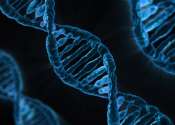Scientists find a simpler way to make sensory hearing cells
Scientists from the USC Stem Cell laboratories of Neil Segil and Justin Ichida are whispering the secrets of a simpler way to generate the sensory cells of the inner ear. Their approach uses direct reprogramming to produce ...
Jul 1, 2020
0
82









